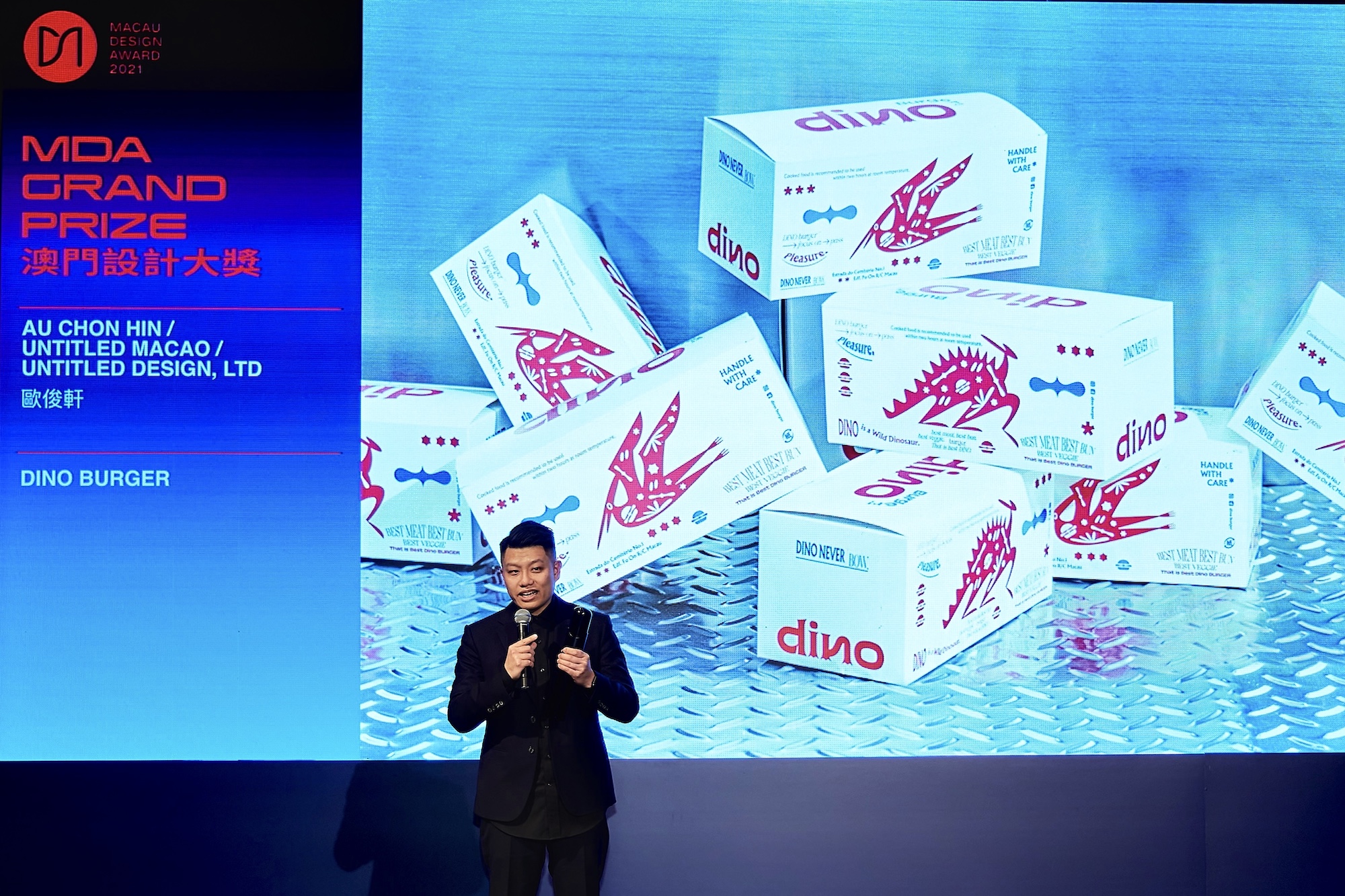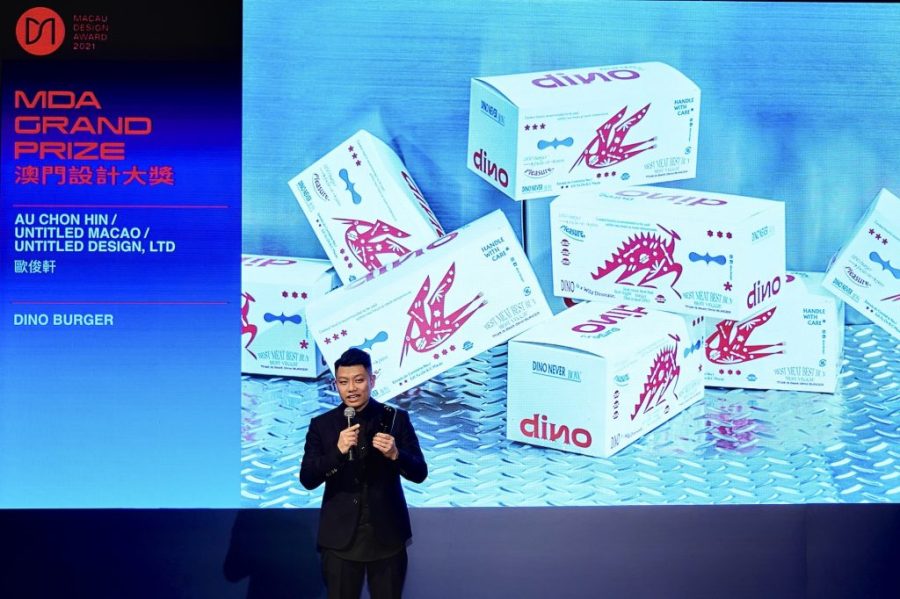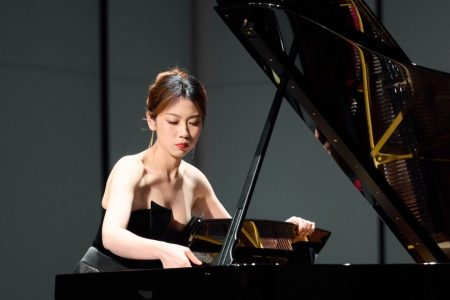You may have seen some of Au Chon Hin’s work along the streets of Macao. Maybe you recognised the posters he created for the hush! Full Music concert in 2020 or the logo he designed for up-and-coming burger spot Dino Burger.
The founder of Untitled Macao, one of the city’s most popular design companies, Au has hustled his way to local fame, picking up many accolades along the way. From his days of doodling on mahjong tiles to interning in mainland China to receiving the Macao government’s Medal of Merit, the emerging designer has built a brand name that resonates far beyond Macao’s borders.
We talked with the 31-year-old to discuss his ascent through the ranks of the creative world, including how he caught the eye of one of the world’s biggest software companies, and why he thinks his achievements can be seen as a win for all Macao designers.
Born to design
Born in Macao in 1990, from a young age, Au found joy in art and design. His family owned a mahjong school, where they taught the traditional tile-based game. To pass the time after school, Au would draw cartoon characters on the tiles — a creative hobby that his parents encouraged. “As I grew older, I realised that [drawing] could be developed into a career,” he says.
After secondary school at Escola Catolica Estrela do Mar, Au joined the Macao Polytechnic University (MPU) and graduated in 2014 with a bachelor’s in design. But the degree was just a part of the equation. During school breaks, he interned in big cities in mainland China like Beijing, Guangzhou and Shenzhen. He credits these internships for expanding his social network and helping him realise what he wanted to do with his career — and what he needed to do to get there. In other words, they provided vital real-world experience.
“We can only truly realise what the market expects [from] designers through practical [real-world] work,” Au says. Working outside the classroom also helped Au discover and develop his own design style – one he describes as “avant-garde and unique”. While Au says his style is difficult to pin down, his work tends to feature eye-catching colours, simple shapes and art that will leave you wanting to know more about the business or event.
Sketching a new direction
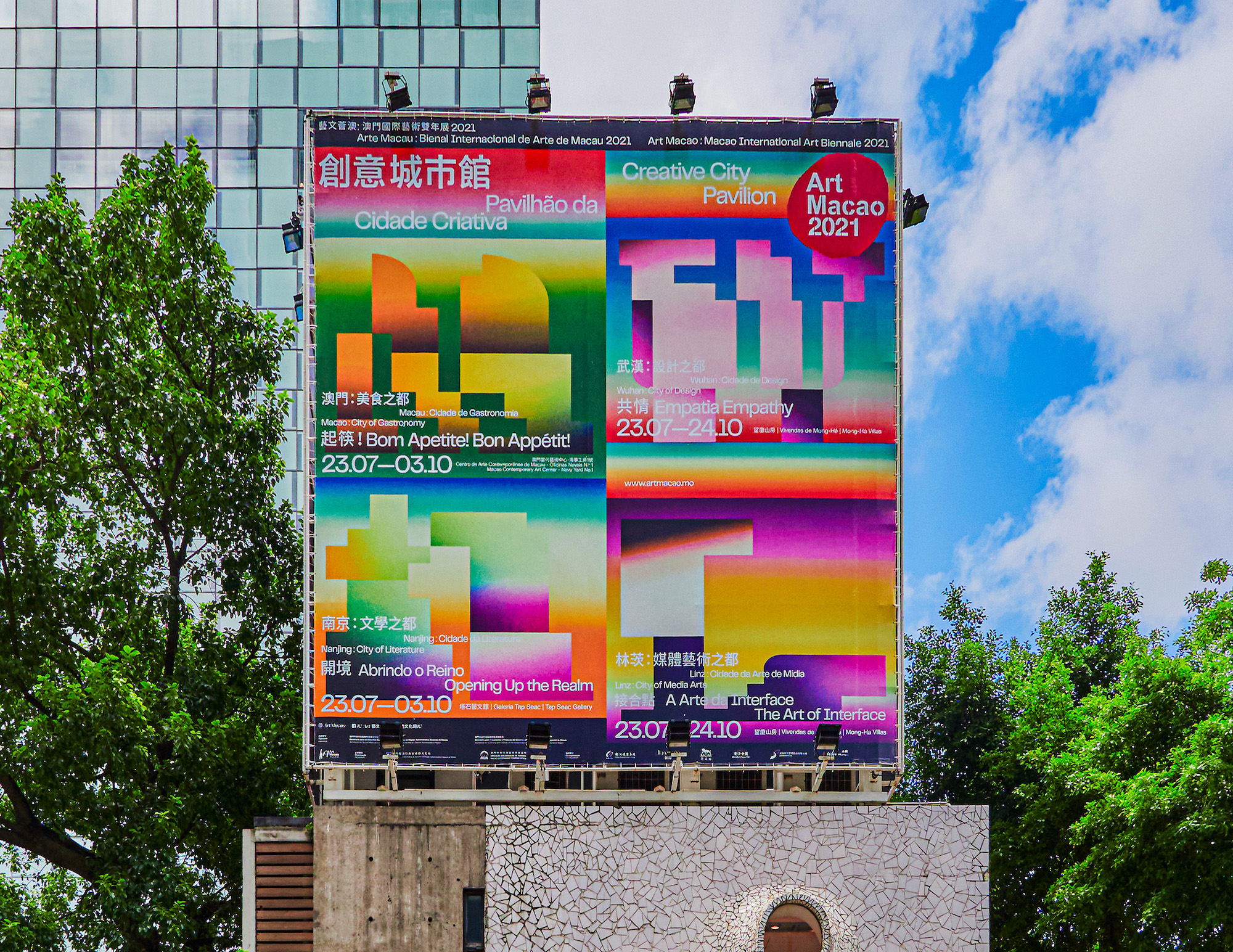
Armed with experience and this distinct style, Au initially followed the path of least resistance as a young professional. For about four years he worked with the Macao government on projects like the Macao Arts Festival, Macao International Music Festival and Festival Fringe da Cidade de Macau.
“I tried creating designs for cultural activities, but that [kind of work] does not help designers grow in the business market,” Au explains. “Many locals used to underestimate the power of culture and design [and had] no idea how to find designers to help them with the branding or design of their products.”
Several years into his career, Au had many ideas bottled up inside his head – some of which he feared would never be seen by the public. To bring life to these ideas, he started his own business in 2017, Untitled Macao, hiring four designers to fill out his team. Specialising in branding, Untitled Macao “creates a new identity” for companies in Macao, designing flyers, logos, posters, websites, banners and even props for events such as the “Infinite Love Marathon Concerts” that took place this February at Sai Van Lake.
In just a few short years, Au has seen his stardom rise.
In 2018, he participated in the Tokyo TDC Annual Awards, an influential event organised by the Tokyo Type Directors Club (TDC) that showcases text-based design and attracts thousands of creative professionals from around the world. Au walked away with the TDC Prize for his work for the 16th Macao Fringe Festival.
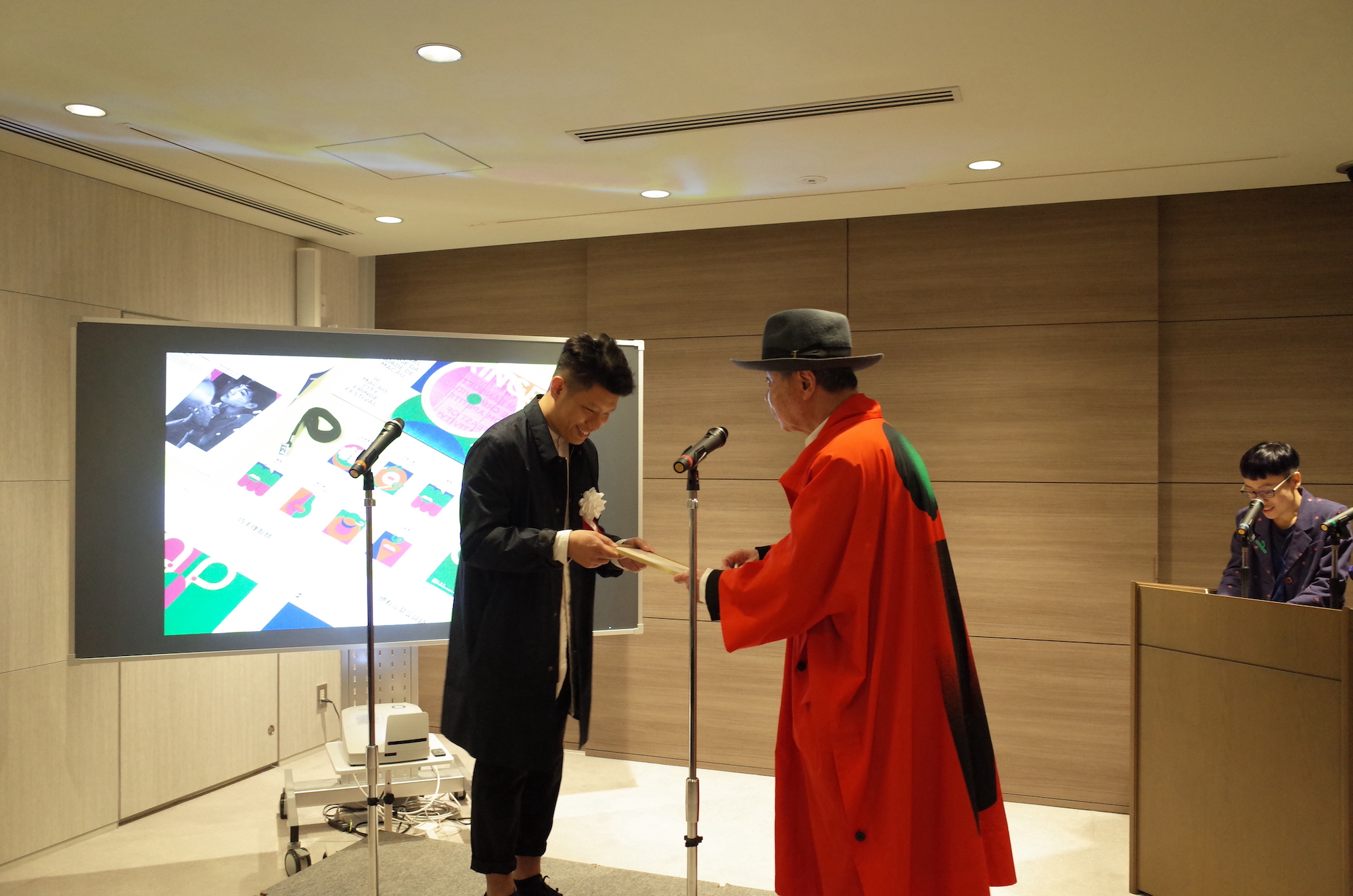
Rooted in the festival’s “Feast of Creativity” theme, his winning illustrations featured fluorescent colours, playful patterns and simple but recognisable shapes – icons of food and utensils – that spoke to the idea of a “feast”. It also brought the festival’s lofty concept down to earth for Macao consumers. “To me, my design showed passion. The judges thought my work matched with society nowadays, this generation,” Au says.
He followed that up with a bronze at the New York ADC Awards, a win at the New York ADC Young Gun17 and four awards at the Macau Design Award Ceremony this year: MDA Grand Prize, SJM Talents Award, Best New Macau Designer of the Year and Brand identity Gold Award for Dino Burger.
Those accolades not only established his credentials in the design world, but also accelerated his career.
“I was happy but stressed at the same time,” Au recalls of the surge of attention that followed his TDC Prize. But he considered this to be “positive stress – the need to always ensure that the next project is better than the last to make sure all projects are done with quality,” a working philosophy that still drives Au today.
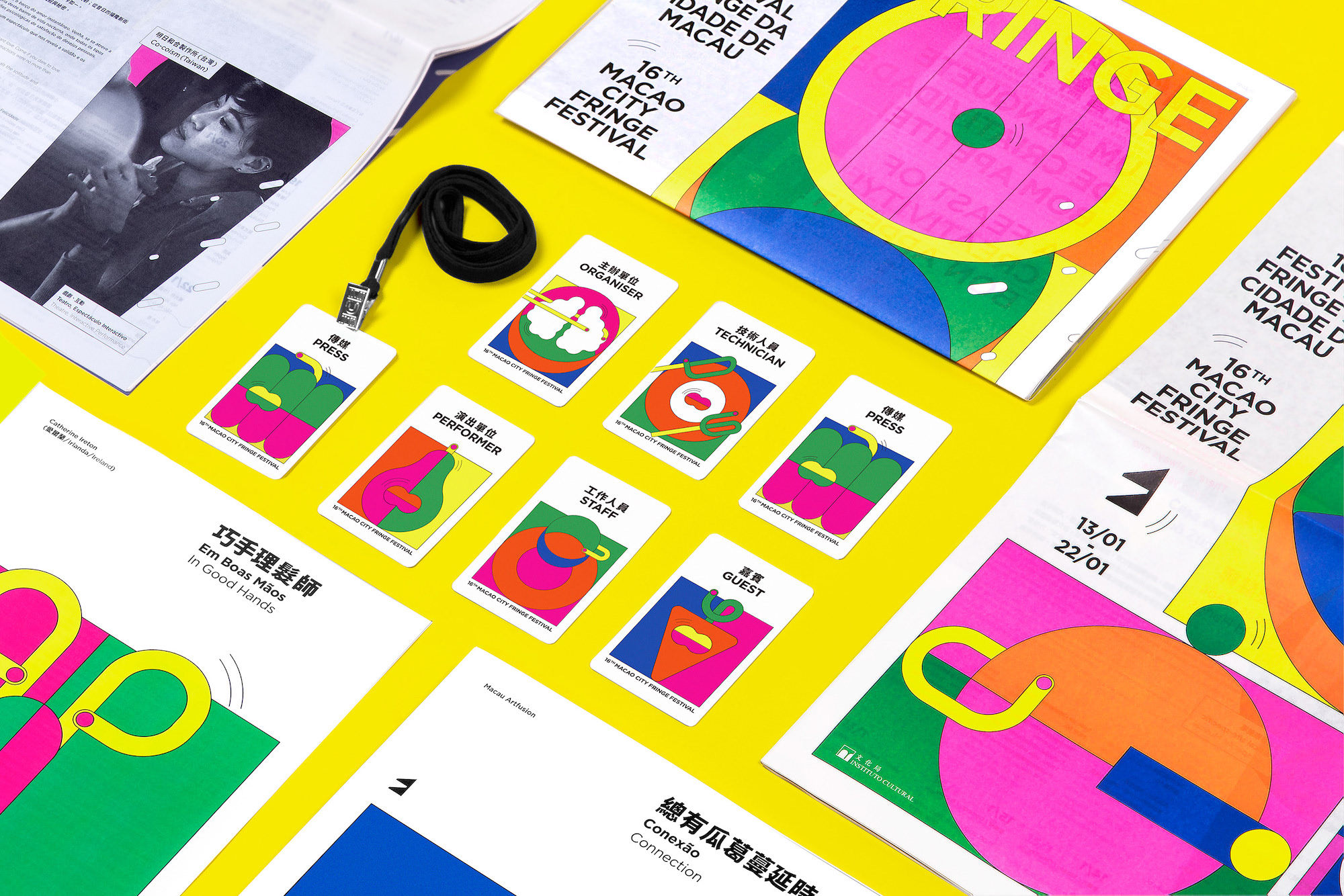
The scope of his projects began to change, too, as Au looked beyond the city to grow his business. “There are opportunities in the Greater Bay Area, but there are much more opportunities all over the world,” he says.
Today, about 70 per cent of his projects come from clients in Switzerland, Japan and the UK, but with fierce competition in the market – especially the growing number of talented designers in mainland China – Au has to hustle.
To burnish his brand, he shares his work on online platforms like WeChat, ZCOOL and Tumblr, but Behance has brought him more attention than all the rest. The Adobe-owned online network allows creative professionals like Au to showcase their work and reach clients across the world. Au has close to 30,000 followers and about 930,000 project views on his account. Many clients come to him directly with work opportunities after discovering his portfolio.
“We seldomly approach or seek clients actively. We just share our work on these platforms,” he says. “It shows [that clients] respect our design.”
‘The DNA of design work’

It’s safe to say that every designer has heard of Adobe. The software company has millions of active users worldwide, courtesy of trademark creative apps like Photoshop, Lightroom, InDesign and Premiere Pro. Au himself had used Adobe software since he was in secondary school. In 2021, his relationship with the brand came full circle when Adobe commissioned Untitled Macao to create the official artwork for InDesign 2022.
He says Adobe representatives did not focus on where his company was located but were simply impressed by Untitled Macao’s Behance portfolio – his collection of vibrant, eye-catching designs, including his work for the Fringe Festival, the Hush concert, Macao Design Week and the Macao International Parade 2019.
“Without a doubt, this project is the most important [of my career so far]. I know it will only be showcased for a year, but the world will get to see it,” he adds with a smile. “It is one of my biggest achievements.”
After several 6 am Zoom meetings with Adobe’s Art, Creative and Marketing Director and others in California, Au and the Adobe team agreed on a ‘DNA’ concept. The final product features vibrant hues – shades of pink, green and blue that pop on the screen – and speaks to Au’s affinity for movies related to the universe, human beings and philosophy.
“The tools and functions of InDesign are like the DNA of the design work [Adobe users produce],” Au says – every person has a DNA sequence that is all their own, and so does the work creators make with Adobe software.
Raising Macaos’ design profile
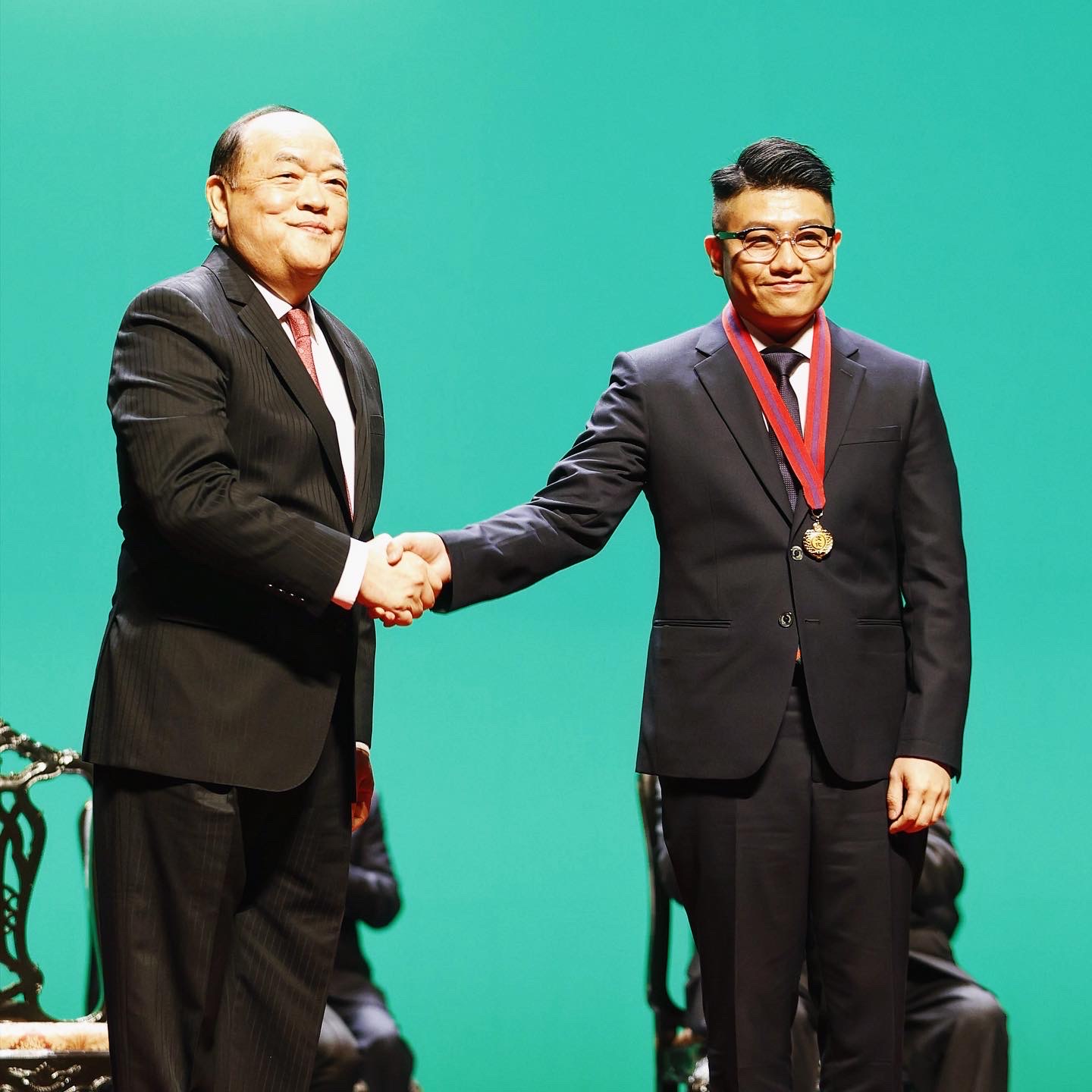
On 18 February, Au was presented with the Medal of Merit in Culture by Chief Executive Ho Iat Seng at the 2021 Decorations, Medals and Certificates of Merit Awards Ceremony. “The chief executive said he appreciated my effort and contribution [to Macao’s culture] and encouraged me to do more in the future,” Au says, explaining with pride that it added more fire to his motivation to create.
Despite all that he has achieved in his young career, Au is not resting on his laurels. He is on a mission to help shatter stereotypes and elevate the profile of Macao’s design industry.
“It’s sad that people know Macao for its casinos, or as the second Las Vegas,” Au says. He believes these stereotypes persist because of a lack of governmental support for creative workers, specifically designers, and too great of a focus on sectors like sports and gaming.
But Au thinks his own achievements offer a way to right this wrong.
He views awards as a “bonus”, a way to gain recognition not just for himself but for all Macao designers. “My sole focus is to work on the local design industry and let people outside Macao know that a small city like [ours] has talented designers as well,” he says. He also hopes to offer more jobs and internships at Untitled Macao to up-and-coming designers.
“What keeps me going is the need to produce [works that benefit] society and transform the world through design,” Au declares. “Every time I receive an award, I’m more convinced that I’m on the right path.”
